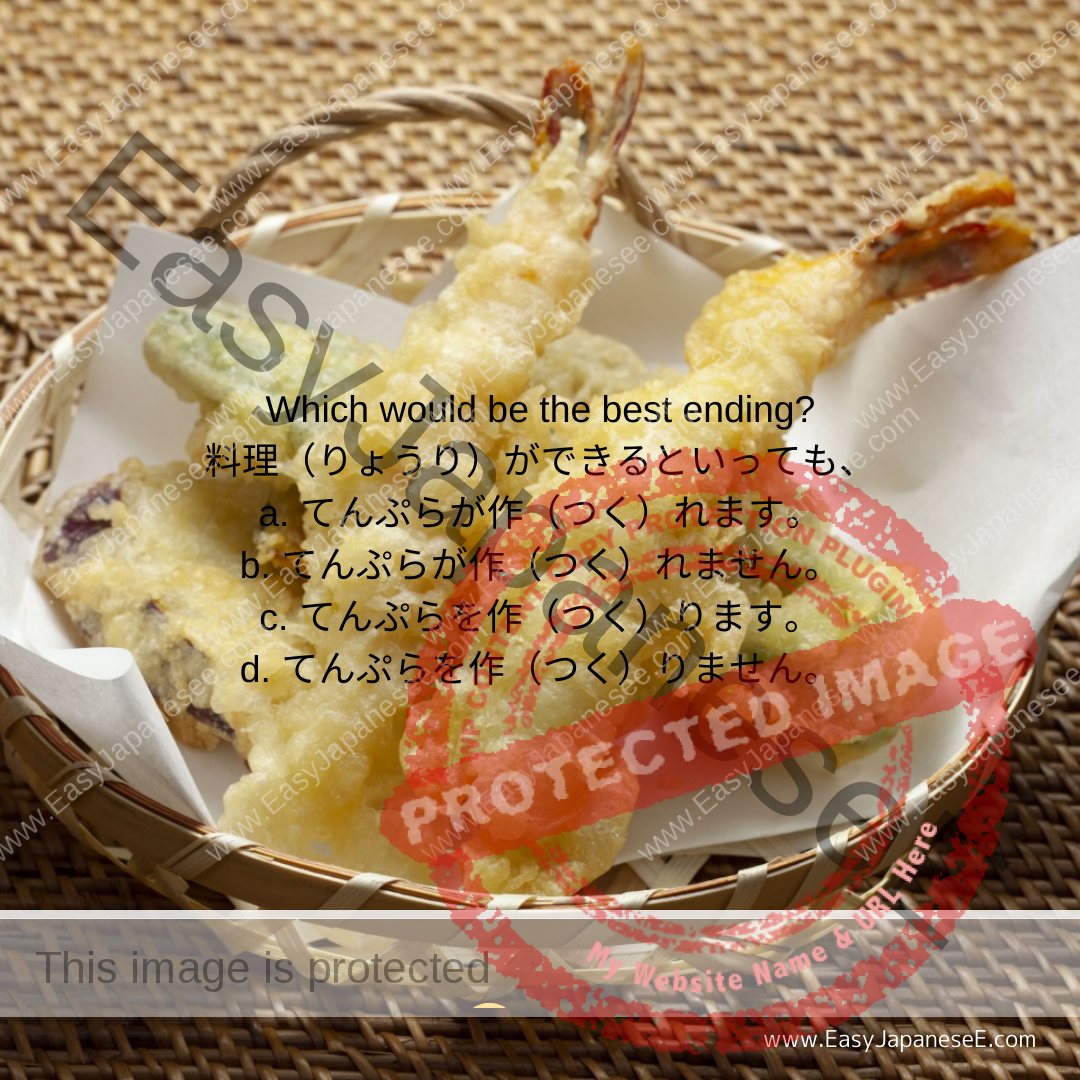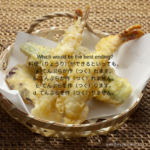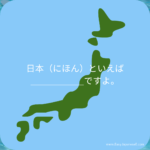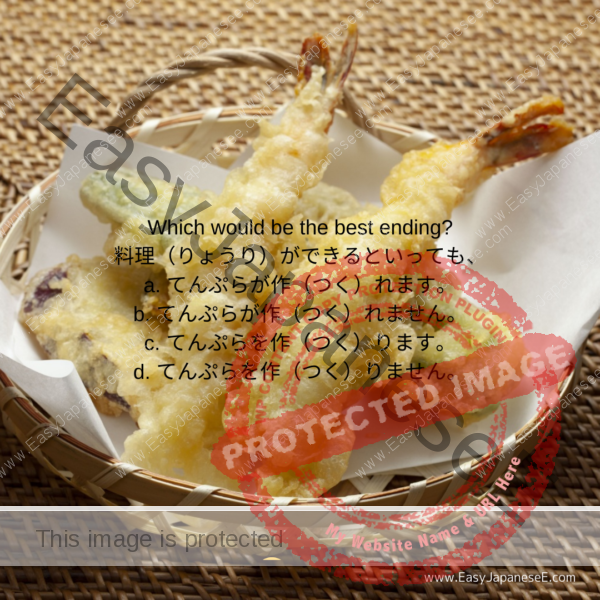
Today’s Question
Which would be the best ending?
料理ができるといっても、
a. てんぷらが作れます。
b. てんぷらが作れません。
c. てんぷらを作ります。
d. てんぷらを作りません。
Today’s Grammar Point: ~といっても
[plain clause] + といっても = even if I/someone may say ~
This expression is used when the reality is less than expected or different from what is said in the beginning.
Examples
- 会社員(だ)といっても、在宅勤務者です。
Although I say I am a company employee, I am working from home. - 看護師だったといっても、3か月働いただけです。
Although I say I was a nurse, I only worked for 3 months. - 今日は忙しいといっても、昨日ほどじゃありません。
I say it is busy today, but it is not as bad as yesterday. - あの問題はむずかしかったといっても、この問題ほどじゃありません。
Although I say that question was difficult, not as had as this one. - ジョンさんはまじめだといっても、ときどき遅刻します。
Although I say John is conscientious, he sometimes arrives late. - 今日は大変じゃないといっても、定時には終わりません。
Although I say it is not hectic today, I will have to work overtime (= I won’t finish my work before the regular time). - 掃除をするといっても、掃除機をかけるだけです。
Although I say I clean, I only vacuum with a vacuum cleaner. - ビーフシチューを作ったといっても、この缶詰に野菜を加えただけです。
Although I say I made beef stew, I only added vegetables into this can. - 酒を飲まないといっても、シードルは飲みます。
Although I say I don’t drink (alcohol), I drink cider. - ピアノが弾けるといっても、簡単な曲だけです。
Although I say I can play the piano, I can play only easy tunes.
Answer to Today’s Question
The best answer is b. てんぷらが作れません。I cannot cook tempura.
A bit awkward but possible answer is d. てんぷらを作りません。I won’t cook tempura.
Related Posts
~というほどではない
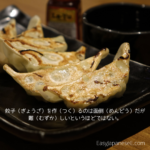
~というほどではない is an expression to say "the extent of something is not as much as yo...
~という…

~という has a few different meanings but if ~という is followed by a noun, it usually mean...
If you liked this post, please share it with your friends via your social media accounts. Your support will be appreciated!
